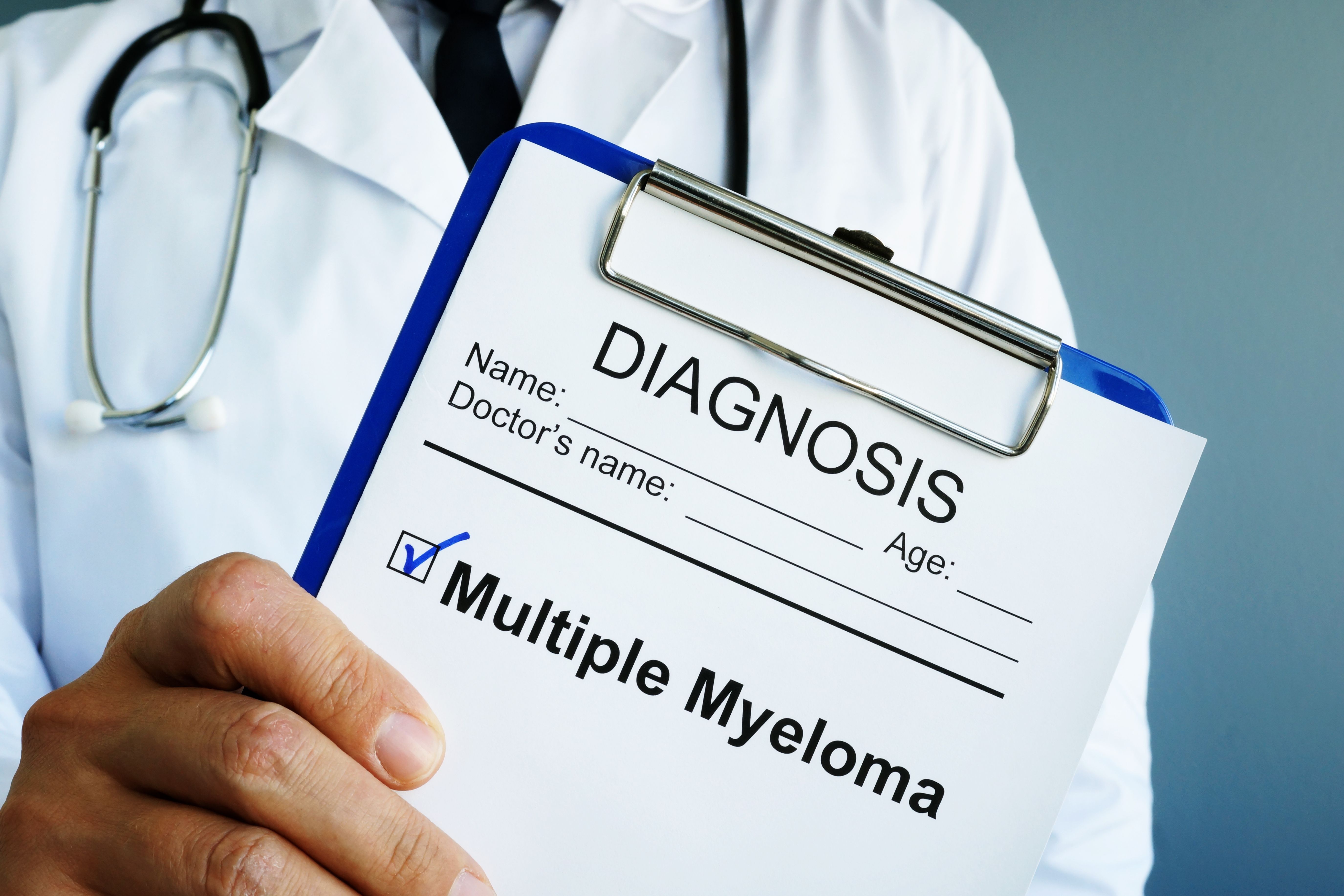- Center on Health Equity & Access
- Clinical
- Health Care Cost
- Health Care Delivery
- Insurance
- Policy
- Technology
- Value-Based Care
Ide-Cel Receives Approval for Earlier Treatment for Relapsed, Refractory Multiple Myeloma
Idecabtagene vicleucel (ide-cel) was able to triple progression-free survival and reduce the risk of disease progression or death in a phase 3 trial.
Idecabtagene vicleucel (ide-cel; Abecma) from Bristol Myers Squibb and 2seventy bio, Inc. was approved for earlier treatment of multiple myeloma.1 Patients with relapsed or refractory multiple myeloma after at least 2 prior therapies can be treated with this previously approved therapy.
Multiple myeloma is an uncurable disease that can go through various remissions and relapses. Treatment and management often entails immunomodulatory agents (IMiDs), proteasome inhibitors (PIs), and anti-CD38 monoclonal antibodies. Poor outcomes and poor progression-free survival (PFS) has been associated with triple-class exposed relapsed and refractory multiple myeloma. Ide-cel aims to improve both in these patients.
Doctor holding diagnosis of multiple myeloma | Image credit: Vitalii Vodolazskyi - stock.adobe.com

Ide-cel works as a 1-time infusion taken after 2 prior lines of therapy. The approval comes on the basis of the KarMMa-3 phase 3 trial. The open-label, global, randomized, controlled trial was able to compare ide-cel with standard treatment. All patients with multiple myeloma had received 2 to 4 lines of treatment prior to receiving ide-cel. A total of 94% of the patients had disease refractory to being treated with daratumumab and 56% switched to ide-cel as a subsequent therapy after the final analysis of PFS.
There were 254 patients who received ide-cel and 132 who received standard regimens, which included a combination of daratumumab, pomalidomide, and dexamethasone, among other combinations. There was a median follow-up of 15.9 months for the PFS analysis. PFS was tripled in patients who received ide-cel, with those on ide-cel having a median PFS of 13.3 months (95% CI, 11.8-16.1) compared with 4.4 months (95% CI, 3.4-5.9) in patients using the standard regimen (HR, 0.49; 95% CI, 0.38-0.64). The reduction in the risk of disease progression was reduced by 51%.
Overall response rates also showed improvement as 71% of patients achieved a response and 39% achieved a complete or stringent complete response. Standard regimens, by comparison, only had 42% who achieved a response and 5% who achieved a complete response. The duration of response for ide-cel was 14.8 months (95% CI, 12.0-18.6), and patients with a complete response had a median duration of response of 20 months (95% CI, 15.8-24.3).
Low-grade cytokine release syndrome (CRS) and neurotoxicity were low when using ide-cel. Any grade of CRS affected 89% of patients; grade 3 or higher was reported in 7% of patients with 0.9% reporting a grade 5 CRS. The median time to onset was 1 day (range, 1-27 days) with the duration lasting a median of 5 days (range, 1-63). Neurotoxicty was found in 40% of patients, and 4% had grade 3 neurotoxicity; grade 4 was reported in 0.6% of patients. The onset of neurotoxicity took a median of 2 days (range, 1-148 days) and lasted a median of 8 days (range, 1-720).
The approval comes after the FDA voted in favor of ide-cel on March 15 on an 8-3 vote.2 The FDA agreed that the treatment had a favorable benefit/risk profile for patients with relapsed or refractory multiple myeloma. The recommendation was considered during the review process for the official FDA approval. Ide-cel was previously approved for the treatment of patients with multiple myeloma who had at least 4 previous lines of therapy, an approval that was based on the phase 2 results of the KarMMA trial.3 For patients who had 4 previous lines of therapy and received ide-cel, the response rate was 73% and the complete response rate was 33%, with a median PFS of 8.8 months (95% CI, 5.6-11.6).
“This approval underpins our commitment to addressing the unmet needs of more patients living with multiple myeloma by improving upon the current treatment paradigm, and we remain steadfast in our pursuit of innovation and advancing cell therapy research to deliver potentially transformative therapies,” said Bryan Campbell, the senior vice president and head of commercial, cell therapy at Bristol Myers Squibb, in a press release.1
References
- U.S. FDA approves Bristol Myers Squibb and 2seventy bio’s Abecma for triple-class exposed relapsed or refractory multiple myeloma after two prior lines of therapy. News Release. Bristol Myers Squibb; April 5, 2024. Accessed April 5, 2024. https://news.bms.com/news/corporate-financial/2024/U.S.-FDA-Approves-Bristol-Myers-Squibb-and-2seventy-bios-Abecma-for-Triple-Class-Exposed-Relapsed-or-Refractory-Multiple-Myeloma-After-Two-Prior-Lines-of-Therapy/default.aspx
- FDA advisory committee votes in favor of Bristol Myers Squibb’s and 2seventy bio’s Abecma for triple-class exposed multiple myeloma in earlier lines of therapy. News Release. Bristol Myers Squibb; March 15, 2024. Accessed April 5, 2024. https://news.bms.com/news/corporate-financial/2024/FDA-Advisory-Committee-Votes-in-Favor-of-Bristol-Myers-Squibbs-and-2seventy-bios-Abecma-for-Triple-Class-Exposed-Multiple-Myeloma-in-Earlier-Lines-of-Therapy/default.aspx
- McNulty R. FDA Approves Idecabtagene Vicleucel for Multiple Myeloma. AJMC. March 27, 2021. Accessed April 5, 2024. https://www.ajmc.com/view/fda-approves-idecabtagene-vicleucel-for-multiple-myeloma
